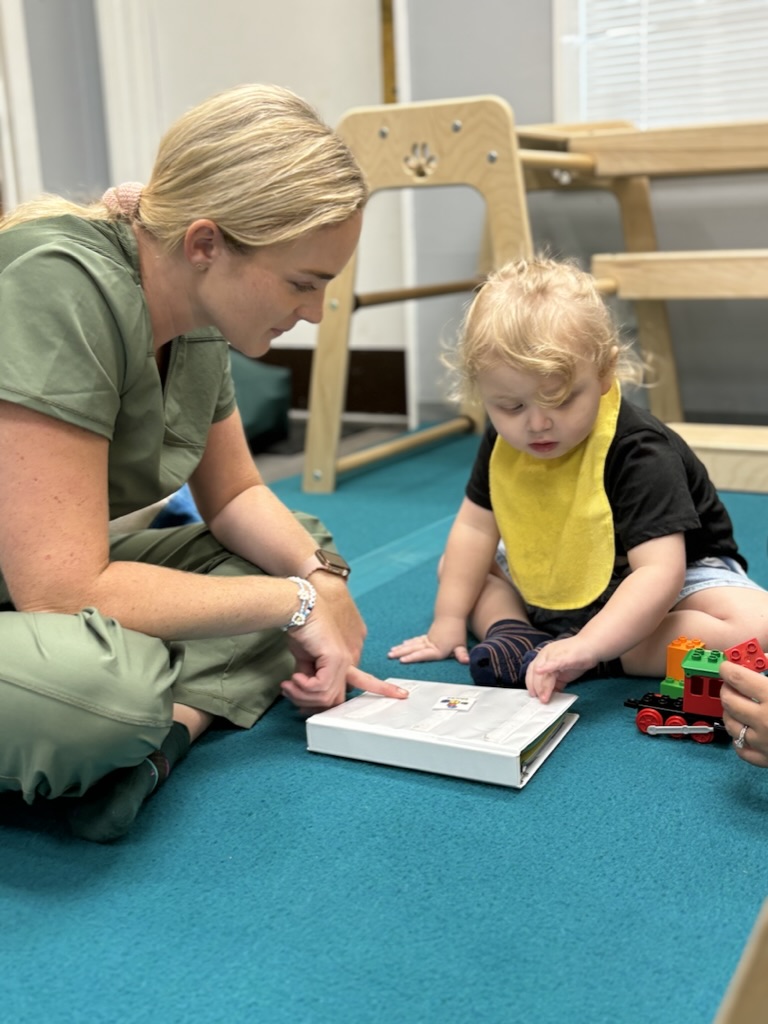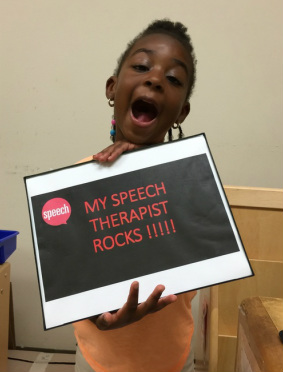

Our Services
While we understand that you have a multitude of options to choose from, we are grateful that you have decided to give us the opportunity to serve you. Allow us to outline why we believe we are the right choice for you:
- Sensory-based and supportive treatment environments
- Fun, and engaging play based therapy that is rooted in evidence based practice.
- Wholistic child approach ( we believe in ABLE not the LABEL)
- Neurodiversity- affirming care
- Collaboration with child’s team which includes : parents, caregivers, dr’s, teachers, other professionals to support home and community carryover.
- Firm commitment to excellence and customer satisfaction.
- We accept all major insurances
- Services in our clinic located in Durham and in the community (home/ daycare certain zip codes only- call to inquire more
- Comprehensive range of professional services:
- Speech therapy
- Occupational Therapy
- Physical Therapy
- ABA Services (Applied Behavioral Analysis for children on the autism spectrum)
- Psychological evaluations
- Mental health services
- BCBS (All except Blue Home)
- United Health Care (All-Saver, Oxford Plan, Bind Benefits), UMR
- Aetna (all except Duke Select)
- NC Health Choice
- Cigna
- Tricare
- Managed Care Organizations: Amerihealth Caritas, Healthy Blue, Carolina Complete Health, UHC of NC, Wellcare of NC, Alliance, Vayahealth, Trillium, Partners Behavior Health
What does a pediatric speech therapist do?
A pediatric speech pathologist (pediatric speech therapist) assesses, diagnoses, and treats communication and swallowing disorders in children. They work with children of all ages to improve speech, language, social communication, and feeding/swallowing skills. Early intervention and treatment with a speech language therapist can significantly impact a child's overall development and academic success. Speech pathologists help children communicate more effectively, which can boost their confidence, social interactions, and academic performance.
Does my child need speech therapy?
If you happen to notice difficulties in one or more of these areas, an evaluation for treatment may be appropriate:

- Difficulty learning sounds for letters in preschool or kindergarten
- Has a history of chronic ear infections or tubes
- Stuttering for more than 3mos, no matter age
- Seems to not hear you or has “selective” hearing
- Aside from mom or dad, adults have difficulty hearing and understanding your child after age 3
- Has a diagnosis of hearing loss at any age, including prior to age 1
- Not combining two-words by age 2
- Not using words or gestures to communicate by 12 months
- Has difficulty following directions or problem-solving in school
- Does not seem interested in peers/siblings
- Does not respond to name or “Stop/No” by 12 months.
Have Q’s? We are here to help
Who can benefit ?
- Attention Deficit Disorder
- Attention Deficit Hyperactivity Disorder
- Apraxia
- Autism Spectrum Disorder
- Bell’s Palsy
- Central Auditory Processing Disorder
- Cerebral Palsy
- Cleft Lip or Palate
- Chronic Ear Infections
- Cognitive Communication Deficit
- Disease of Vocal Cords
- Developmental Disorder of Speech and Language
- Down Syndrome
- Dysarthria
- Dyspnea
- Dysphonia
- Dyslexia
- Expressive Language Disorder
- Facial Weakness
- Feeding Difficulties
- Fluency Disorder
- Frontal Lobe and Executive Function Deficit
- GERD/GER
- Hearing Loss
- Hyper/Hyponasality
- Intellectual Disabilities
- Jaw Asymetry
- Lalling
- Lisping
- Mixed Receptive-Expressive Language Disorder
- Muscular Dystrophy
- Neurofibromatosis
- Nodules of Vocal Cords
- Paralysis of Vocal Cord and Larynx
- Phonological Disorder
- Polyp of Vocal Cord and Larynx
- Speech and Language Delay Due to Hearing Loss
- Slurred Speech
- Swallowing Disorders
- Tracheostomy
- Traumatic Brain Injury
- Voice Responance Disorders
Well-known treatment approaches in which our Speech-Language Pathologists have received advanced training include:
- Picture Exchange Communication System (PECS)
- Snap+Core
- PROMPT
- The S.O.S. Approach to Feeding
- The Hanen more than words
- Sensory certificate program for SLP0
- DIR Floortime trained
- Natural language acquisition for gestalt language processing & echolalia
- Barton reading and spelling program for children with dyslexia.
What Insurance Does Therapy Smarts Accept?
We are in network and file insurance claims for these providers.
- BCBS (All except Blue Home)
- United Health Care (All-Saver, Oxford Plan, Bind Benefits), UMR
- Aetna (all except Duke Select)
- NC Health Choice
- Cigna
- Tricare
- Managed Care Organizations: Amerihealth Caritas, Healthy Blue, Carolina Complete Health, UHC of NC, Wellcare of NC, Alliance, Vayahealth, Trillium, Partners Behavior Health
Parent Testimonial
Frequently Asked Questions
If you have concerns about your child’s speech or language development, trusting your instincts and seeking help early can make all the difference. At this tender age, a Speech-Language Pathologist can perform a gentle, age-appropriate evaluation to understand your child’s unique needs.
Even if therapy isn’t immediately necessary, you’ll leave with practical tools and guidance to nurture your child’s communication right at home.
Early intervention is more than just a service—it’s an opportunity to shape your child’s future. The sooner we begin, the stronger the foundation for learning, social connection, and self-confidence.
If your heart is telling you something isn’t quite right, don’t wait. Supporting your child today can open doors to a lifetime of growth and joy.
If your child is showing any of the following signs, it may be time to consider a speech and language evaluation:
- Not combining words by age 2
- Not using words by 18 months
- Difficult to understand by age 3
- Frequent frustration or withdrawal related to communication struggles
- Trouble understanding or following directions
- Difficulty being understood by others
- Challenges with stuttering, articulation, or pronunciation
- Social communication difficulties, such as limited eye contact or trouble taking turns in conversation
At our center, we offer professional screenings and comprehensive evaluations to determine whether speech therapy is recommended.
Early identification and support can make a lasting difference. If you have concerns, trust your instincts—taking the first step now can empower your child for a lifetime of successful communication.
Speech therapy sessions are individualized, engaging, and play-based, designed to make learning both effective and enjoyable for your child.
A licensed Speech-Language Pathologist (SLP) will tailor each session to your child’s unique needs and goals, using a variety of tools such as games, books, toys, and structured activities. Through purposeful play and evidence-based strategies, your child will build essential communication skills in a supportive and motivating environment.
Our goal is not only to improve speech and language, but to help your child gain the confidence and tools to connect, express, and thrive—both now and in the future.
Speech therapy sessions typically last 30 minutes and are scheduled 1 to 2 times per week, depending on your child’s individual needs and therapy goals.
This frequency allows for consistent, focused intervention while supporting steady progress over time. Your speech-language pathologist will work with you to determine the most appropriate schedule for your child.
This is one of the most common—and deeply personal—questions families ask. And we understand the emotion behind it.
As speech-language pathologists, our goal goes beyond teaching words. Our mission is to help your child connect with the world around them, to express their needs, share their joy, and be truly understood—whether that’s through spoken language, sign language, gestures, or AAC (augmentative and alternative communication).
Every child’s voice is unique. For some, it’s verbal. For others, it starts with a sign, a picture, or the touch of a button. What matters most is not how they communicate, but that they can—and that they feel heard, valued, and empowered.
We walk beside you on this journey, celebrating every sound, every sign, every breakthrough—because communication is more than words. It’s the bridge to relationships, learning, and confidence. And we’re here to help your child build it, one step at a time.
That’s perfectly okay. We’ll build on past progress and create a plan tailored to your child’s current needs.
In-person therapy is typically recommended, but teletherapy is available depending on your child’s needs and insurance coverage.
Coverage depends on your plan. We accept most major insurances and will review your benefits during the intake process. We also offer private pay options.
Additional FAQ’S – see main page.
During the evaluation, a licensed therapist will assess your child’s strengths, challenges, and developmental needs in the specific area of concern.
We take time to understand your child’s unique profile, discuss your family’s goals, and create a personalized therapy plan to support meaningful and lasting progress. Evaluations typically last 1 to 2 hours and may include a caregiver meeting and/or a school observation. We always begin by building rapport with your child, ensuring they feel comfortable and engaged. For school-age children, evaluations often include standardized testing at a table, while younger children may be assessed through play-based or movement-based activities and or parent/ caregiver questionnaire
At Therapy Smarts, every evaluation is more than just an assessment—it’s the first step in your child’s journey toward growth and success.


